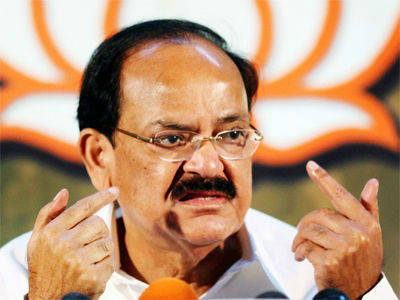Vijayawada, Jan 10: Union Minister for Urban Development M. Venkaiah Naidu on Saturday said Congress chief Sonia Gandhi was not the Bharatiya Janata Party’s enemy No. 1 but rival No. 1.
 “In politics, there is no enmity. Political parities are just rivals, and the differences are only ideological. Both the Centre and State governments should play like Team India towards winning the match i.e., democracy,” he added.
“In politics, there is no enmity. Political parities are just rivals, and the differences are only ideological. Both the Centre and State governments should play like Team India towards winning the match i.e., democracy,” he added.
His comments on the arch-rival assumes significance, as the NDA is keen to take the support of the Congress in passing the Goods and Services Tax Bill in the next session of Parliament.
Speaking at the inaugural ceremony of the National Rural Sports meet at NTR Stadium at Gudivada in Krishna district, the Union Minister said decay had set in the functioning of Parliament and Assembly.
“The unruly and unparliamentarily behaviour by members are distressing. The language used by some members is deplorable, and it is time they set an example for the future generation, as their behaviour was watched by the general public live. The members can stage a walkout and indulge in heated discussions but creating meaningless ruckus is unacceptable.”
He felt that the voters should make sure that people without proper character not sent to the Parliament or Assembly.
Mr. Naidu said the Central government would stand by the Andhra Pradesh government in the formation of the capital city in Amaravati and would release funds in a phased manner.






Comments
Mr. Naidu forgotten to remind all so called \ behavior\" to his fellow members like Sakshi,Togadia,KPB and other hate mongers."
Add new comment